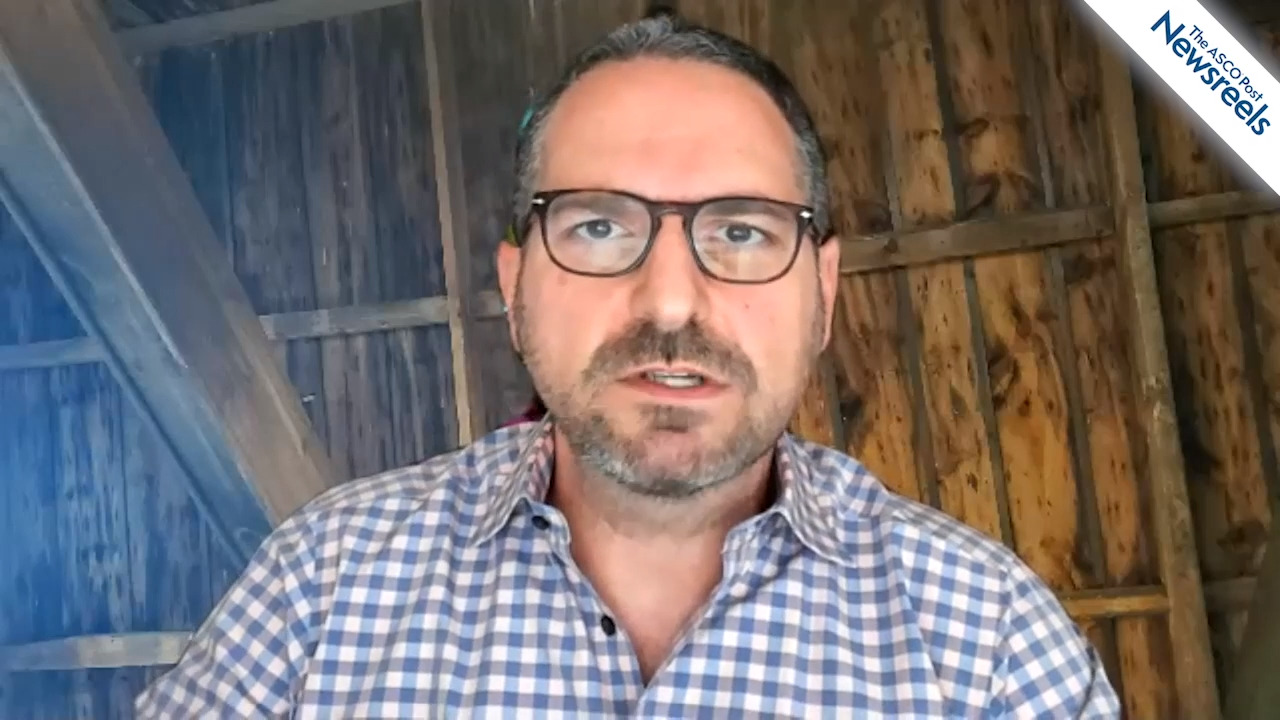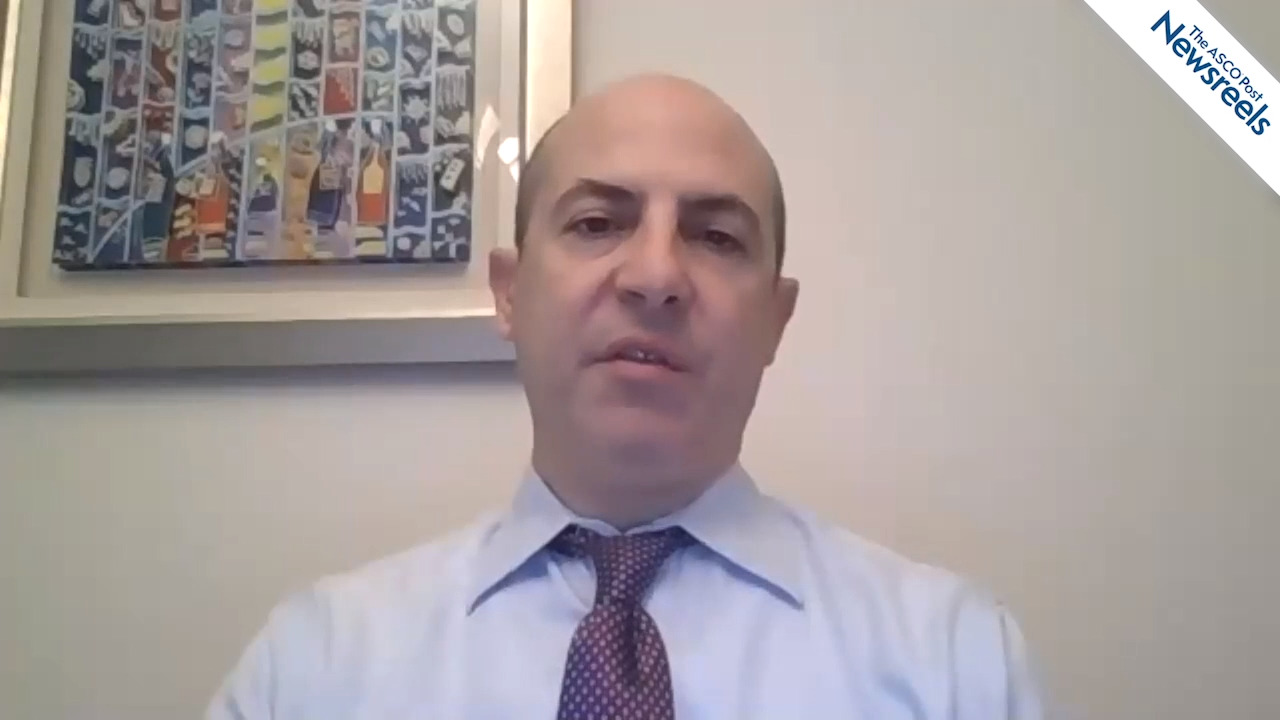Richard S. Finn, MD, on HCC: Atezolizumab Plus Bevacizumab vs Sorafenib
2021 Gastrointestinal Cancers Symposium
Richard S. Finn, MD, of the UCLA Medical Center, discusses updated results from the IMbrave 150 study, which showed atezolizumab plus bevacizumab provides the longest overall survival seen in a front-line phase III study in advanced hepatocellular carcinoma, confirming this combination as the standard of care for patients with previously untreated, unresectable disease (Abstract 267).
The ASCO Post Staff
Matthew H.G. Katz, MD, of The University of Texas MD Anderson Cancer Center, discusses findings from the Alliance A021501 study, which showed that administering mFOLFIRINOX before surgery was associated with a favorable overall survival rate relative to historical data in patients with borderline resectable adenocarcinoma of the pancreas (Abstract 377).
The ASCO Post Staff
Zev A. Wainberg, MD, of UCLA Medical Center, discusses phase II results from the FIGHT study, which combined bemarituzumab with modified FOLFOX6 in first-line treatment of advanced gastric/gastroesophageal junction adenocarcinoma. This is reportedly the first randomized trial of any FGFR inhibitor, validating this target in gastric cancer (Abstract 160).
The ASCO Post Staff
Wasat Mansoor, MBChB, PhD, of The Christie NHS Foundation Trust, discusses phase III results from the KEYNOTE-590 trial, which showed no deterioration in health-related quality of life when pembrolizumab was added to chemotherapy in patients with metastatic and unresectable esophageal cancers (Abstract 168).
The ASCO Post Staff
Thierry André, MD, of Hôpital Saint-Antoine, discusses results from the GARNET study, which showed that dostarlimab, an anti–PD-1 antibody, demonstrated durable antitumor activity in patients with mismatch repair–deficient colorectal and noncolorectal solid tumors. No new safety signals were detected, and most treatment-related adverse events were of a low grade (Abstract 9).
The ASCO Post Staff
Rutika Mehta, MD, MPH, of the H. Lee Moffitt Cancer Center and Research Institute, discusses the 3-year regression-free and overall survival results from the JACCRO study, which compared the efficacy of S-1, an oral prodrug of fluorouracil, vs S-1 plus docetaxel after curative resection of stage III gastric cancer (Abstract 159).





